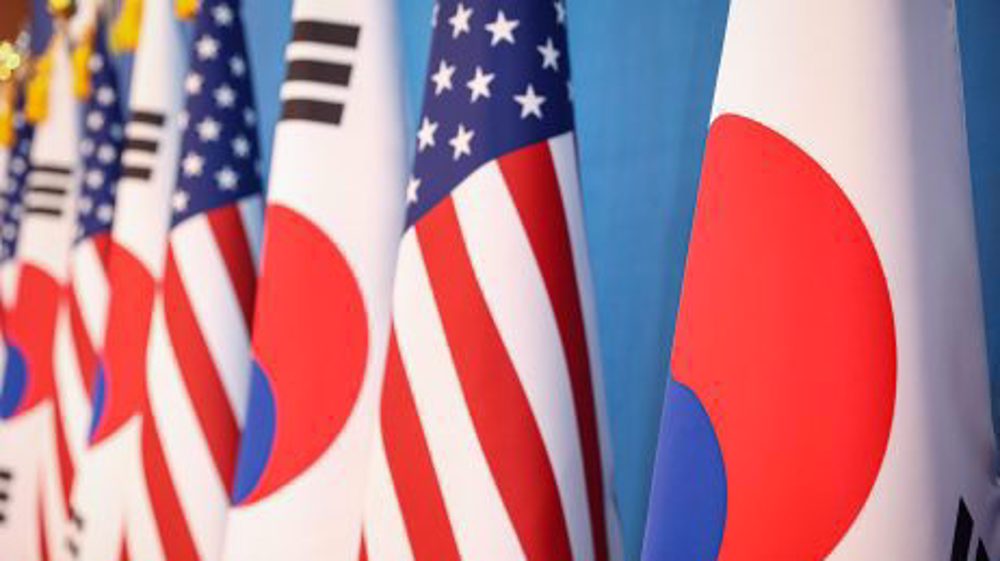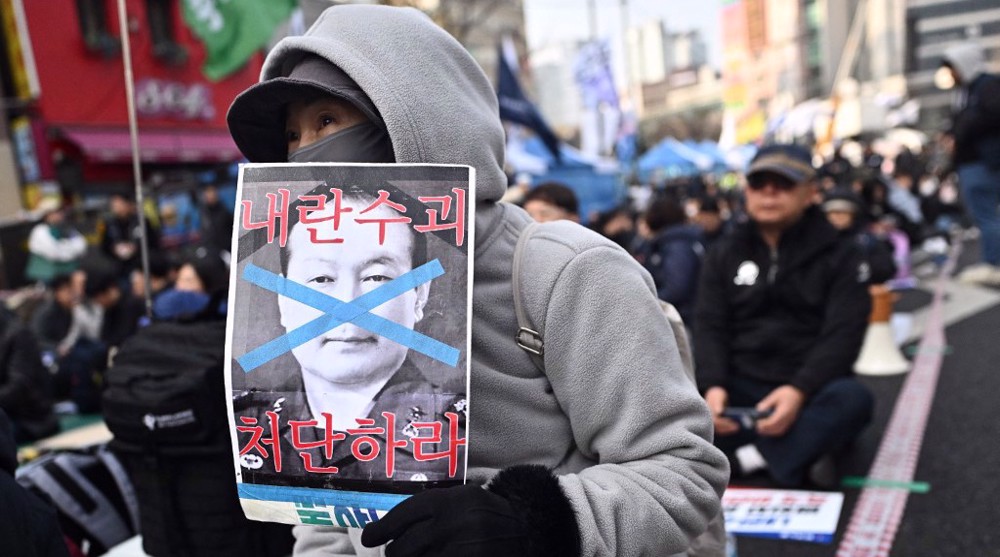Japan recalls envoy to South Korea over contentious statue
Japan has recalled its ambassador to Seoul in protest at the placing of a controversial statue representing victims of wartime sex slaves outside its consulate in the South Korean port city of Busan.
Japan’s chief government spokesman Yoshihide Suga announced the withdrawal of Ambassador Yasumasa Nagamine in a press briefing in Tokyo on Friday following a cabinet meeting.
Tokyo was also taking additional measures, including ordering home its consul-general in Busan, suspending discussions on a Japan-South Korea currency swap, and postponing high-level economic dialogue, Suga noted.
“It's extremely regrettable we had to take this action,” the Japanese official said, adding, “The Japanese government will continue to strongly urge the South Korean government as well as municipalities concerned to quickly remove the statue of the girl.”
The 1.5 meter-tall bronze statue depicting a young, barefoot woman sitting in a chair was erected by a civil group late last December symbolizing "comfort women," women who were forced to work as sex slaves for Japanese soldiers during World War II.

It is estimated that up to 200,000 women, mainly Korean, were forced to be wartime sex slaves. Others came from China, the Philippines, Taiwan and Indonesia.
Following Japan’s recall, South Korean Foreign Ministry issued a statement and expressed regret over Japan's decision.
"Our government stresses once again that even if there are difficult issues between the two countries, both governments, based on trust, need to continuously develop the relationship," the statement read.
Back in December 2015, Japan and South Korea reached a deal on the “comfort women” issue, under which Tokyo agreed to give $8.6 million to a fund to help survivors.
However, critics said the agreement had failed to hold Japan responsible for wartime abuses.

US-South Korea trade tensions

China ‘firmly’ opposes countries making trade agreements with US at its expense

South Korea's court removes president over martial law controversy
VIDEO | Press TV's news headlines
Betar US: America's new face of Zionist terrorism and the darker rebirth of Kahanism
‘More serious than before’: Iran-US talks enter critical phase amid hope and caution
Pezeshkian’s visit to Baku heralds new order in South Caucasus
VIDEO | Eight killed, six injured after car rams into crowd at Vancouver Filipino festival
Keffiyeh-wearing Jewish woman assaulted by pro-Israel mob in New York
Hezbollah, Hamas, Islamic Jihad express solidarity with Iran after deadly port explosion
Pezeshkian: Iran ready to share achievements with African nations










 This makes it easy to access the Press TV website
This makes it easy to access the Press TV website